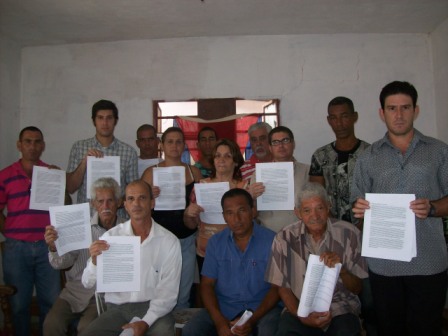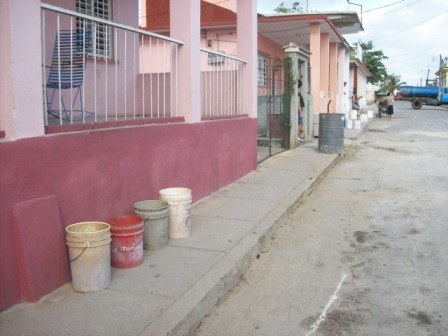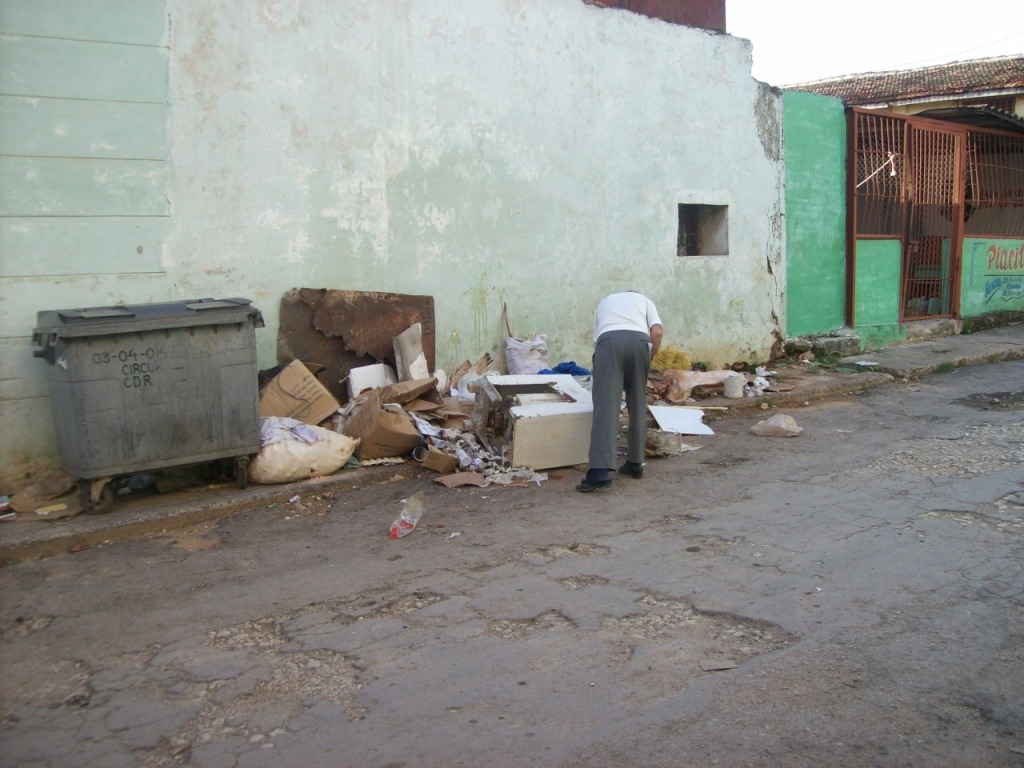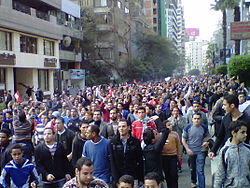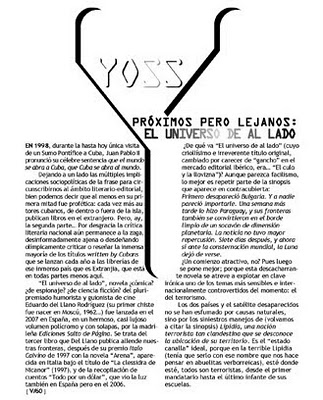
Divinations
Note: This work was originally written for and published in Voices magazine #5, in January, 2011.
I want to start with a statement of principle absolutely rigorous and rigorously true: I respect the religious beliefs of all people anywhere in the world. The second statement I will make is as vertical and solid as the first: I reserve the right to question certain aspects of magical or religious practices when they cause me doubt — whether motivated by my own ignorance or by the nature and consequences of such practices — and I also claim my legitimate right to publicly expose what I think in that respect. An agnostic of my own doing, and anthropologist by training, man himself, beyond creeds or doubts, is most important to me. That said, I will address the issue.
Throughout history, mankind has always been tempted to decipher the future, and each culture has, at one time or another, in some way, succumbed to it. From the very beginning, primitive cave dwellers consulted the stars, the entrails of animals, and even trees and stones; they devoutly painted rustic cave walls with beautiful drawings and practiced propitiatory rites to enable the arrival and establishment of prosperity and good times. Several millennia have transpired since we supposedly left “barbarism” behind us and since the rise of “civilization”. Those years were a hard journey for humanity, and the inspiration for the oracle was ever-present. To date, the practice of predicting events for self-preservation, protection against them, or the conjuring of threats remains and attracts millions of people from the widest spectrum of creeds and cultures across the globe. To claim that the techno-scientific development achieved by humankind has displaced the magical practices of oracular character is nothing short of pedantry by the more educated: inside, man is still as superstitious as when he inhabited caves, and almost as ignorant, with apologies to cavemen. In fact, today, some oracles are available online, in what might seem, at first glance, the inversion of the equation: technology at the service of superstition.
Thus, no society, no matter how highly developed or sophisticated, has abandoned that universal tradition of divination. Regardless of the vehicle used for the prophetic ritual — whether the Tarot, the I-chin, the Horoscope or any other means — the fascination of peeping into a future subject to the enigma of a predetermined supra-human Destiny seems to defy time. And no wonder. Man is the only living being aware of his mortality, of his ephemeral character, and of his very weaknesses, which transforms Destiny into one of the most tempting mysteries in human existence.
However, from a certain point of view, concerns about the future – despite its romantic halo, a mixture of mystery, magic and enchantment — is not but a manifestation of a deep practical sense: to know what will happen allows us to optimize our brief stay in this world. And, without a doubt, the most practical of all men were, and still are, the wizards… the prophets; because they, as the occasional interpreters of arcane symbols, have others not just believe they possess superior gifts to probe the secrets of the future, but they actually have the ability to influence the will of large sectors of human societies, and to benefit from it.
Cuba, prophecies of survival
The magic substrate of prophecies is well cultivated in religion. In all of them there are omens, predictions, miracles, and even spells that can’t all be listed here. Universal mythology in the generic sense, with its fascinating poetic charge, has planted images, parables and traditions in the cultures of humankind. Cuba, a country with a peculiar religious syncretism, is no exception. The uneven and never clearly defined mixture of Spanish-inherited Catholic religion, the complex animist beliefs of African heritage, and certain magical-religious vestiges of our extinct indigenous cultures, characterized by ancestor worship — as fundamental components of this syncretism — seems to imprint in a large part of Cuban society a sort of natural predisposition to religiosity, a predisposition that has grown exponentially in recent years, marked by deepening shortages, the loss of values, and the urgent search for solutions.
Sociology and history indicate that religious practices –- like the people who profess them — parallel their eras. The sign of “anything goes” that characterizes permanence in a precarious state of survival has empowered Cuban spirituality to the point that many people look for hope and reason simultaneously in every niche of faith. All faiths are worthy when envisioning a personal solution to the crisis, so it is not difficult to find one individual in settings as diverse as a mass at the Cathedral, in consultation with a fortuneteller or at the trays of Ifá. Rosaries, runes, cards and seashells might be the barricade that will protect against the evils that could launch their attacks from any corner.
In the midst of such kaleidoscopic magic-religious outlook, the predictions of the Letter of the Year, a tradition of remote Nigerian origins, beliefs greatly diminished in Africa under the overwhelming Protestant push first and then by the Muslims, paradoxically has been gaining popularity in Cuba, some attracted by the momentum of sincere faith, others by the need to find a glimmer of hope, and all seeking a sign of a future being made ever more uncertain by circumstances.
However, as a phenomenon peculiar to this society and this time, not even the Letter of the Year can escape the unwritten rules that survival and uncertainty impose. There are many contradictions hidden behind a ritual ceremony that — perhaps unintentionally — reflects in part the same original vices than those of a society seeking to make predictions. To begin, each year, two Letters are disclosed in Cuba: one published by the Cuban Council of Elder Priests of Ifá, a consortium whose headquarters is a large house located on Prado, opposite the Parque de la India, in the capital, openly worshiped, recognized and protected by the Cuban authorities to serve their political interests, and one that is spread by the Organizing Committee of the Letter of the Year “Miguel Febles Padrón”, declared “independent” and made available from a modest temple-house in the Diez de Octubre Municipality in Havana, where every year many babalawos* get together and who, this time – according to statements in the printed document that they published — had “the support of the Priests of Ifá, of all the families in Cuba, and of their descendants in the world”, which in itself contradicts the fact that there are two independent predictions within the same religion.
On the other hand, the universal character that the priests of Ifá declare for their oracles causes inconsistencies in its credibility by releasing such general predictions that result in predictable events, without consulting any divination tray. I will return briefly to this point a little later.
Other elements to consider are the predictions themselves, taking into account annual sequences, the events of social interest that they forecast, the recommendations they make, etc., as well as the compliance or lack thereof of the previous years’ Letters; the intelligibility of their sayings and the ambiguity and vagueness of their language, among other key issues. I am referring to the independent nature attributed to the Letter dictated by the Organization Committee based at the Diez de Octubre Municipality location, avoiding, as far as possible, the contaminating official stench that could emanate from the other one.
For example, the Letters published in 2005 and 2007 are identical in many of their contents. The sections that were dedicated to serious diseases, events of social interest, statute’s axioms, and almost all the recommendations, were literally copied from the former to the latter. Two years, that, however, turned out to be quite different from each other in many ways, and right in the middle of which came Fidel Castro’s momentous proclamation (2006) delegating power to his brother and a small committee of characters holding high government positions who were, among others, three of the ousted acolytes of today. If a message about this was stated in the January 2006 Letter, it had to be very cryptic, because no one discovered it among predictions, recommendations and maxims.
Needless to say that some other elements in the Letter of the Year are pure garbage. The announcement of “the death of older people and public figures in culture and politics” that has appeared in one of the last letters is really obsolete, though most fans insist that the deaths of several elderly historic Cubans were announced by the board of Ifá and its interpreters, the babalawos. Predicting the likelihood of death for elderly or public figures of culture and politics “who are around 80 years old or have crossed that threshold — especially when it is known that many officials in high positions are old men engaged to that nomenclature — is not only an immature absurdity, but it makes a mockery of people’s intelligence. The announcement of “power struggles” also seems like a dramaturgical job, in light of the forced retirement of the senile commander.
We don’t have to shake any seashells to “guess” that the interests accumulated by the ruling class for over half a century will inexorably lead to bitter conflicts between the different tendencies that inevitably exist in the ruling elite as soon as the unifying ruler of those historical forces stepped down from the presidential recliner. The numerous purges that have taken place in recent years are a reflection of the realignment of forces that emerge from these conflicts, which, in the long run, will possibly delineate the political landscape that will host the long-awaited transitional changes.
The always ambiguous language used by the interpreters of Ifá allows each person to essentially fit the speech to his own liking, and to interpret whatever he might understand out of its convoluted and faulty syntax, especially when universal significance is given to its predicted effects. Rain, tsunamis, droughts, epidemics, war, military occupation, earthquakes, hurricanes and shipwrecks are omens that lose authenticity when applied generally to the whole planet; it is obvious that these are recurring events that invariably take place each year in one or other region on Earth. Shouldn’t Ifá be more specific in order to have his aid be more effective? Or is it his priests who do not interpret his predictions exactly? In my opinion, these limitations are caused by the effort to apply universal relevance to local-type religions, typical of lower stages of development.
The most recent one, the 2011 Letter of the Year, repeats the 2010 reigning symbol, it has Oggún (patron saint of blacksmiths and the military) as its regent divinity, which some Cubans have interpreted as a complacent acquiescence, or perhaps a friendly wink to General Raúl Castro. This year, the very handy threat of war, confrontation and “military intervention” is maintained, too much like the Cuban government’s discourse, overused and repeated ad nauseam, in order to keep the subjectivity of “the people” around an imaginary enemy attack. Shouldn’t Ifá be more creative? No, the priests will probably say that the Letter refers to events that will occur in other countries of the world.
It also seems a curious coincidence that, pursuant to the “renewal of the model” advocated by General Castro begun some time ago, with measures such as distribution of land in usufruct to the peasants, the 2011 Letter of the Year takes advantage to include in its recommendations “to absolutely restore or eliminate old political schemes to enjoy a new social order.” And with that, all is right with God and the Devil: change has been the popular outcry for years, as is, of late, the regime’s urgent need to retain power through a grace period. It would seem that, instead of proposing prophecies to lead us properly through life, the Ifá’s proposals, through his priests, keep us dependent on the rhythm of the official model, survival, and the vagaries of the system.
However, believers are struggling to find rationalization to support their faith and their hope of improving life among the ambiguities and detours of the year’s patakies**. That’s why, in contrast with the alleged universalism of the Ifá oracle, Cubans seek out even the slightest sign of progress for Cuba… and he who seeks will always find. This is influenced by not only the critical economic situation we’ve been mired in for a long time, but also by the chronic misinformation that the vast majority of Cubans are suffering from, dependent on the meager communication they receive from the strictly government-controlled media.
Contrary to what I discuss here, it could be argued that the Rule of OSA, the Ifismo, or anything related to traditions and principles of this religion do not indicate a political character, in fact, this is what many priests allege, but this is not fully adjusted to the truth. The religions of African origin have been as persecuted by the regime as all other religions, or even more so, given that their practices were largely demonized, their rituals had to be hidden, and their faithful belonged to the poorest and most marginalized levels of society. These circumstances, and the act of existing under a totalitarian government, lend a political edging to every element of social life in Cuba that religions cannot escape.
A priest’s views
Victor Betancourt himself, a babalawo who regularly participates in the ritual of the Letter of the Year Organizing Committee, has recently responded to questions addressed to him by several readers of Diario de Cuba, and recognizes what I would define as a lack of commitment to the predictions and their effects. According to Betancourt, in response to whether or not the prophecies of last year’s Letter came true, “it is very difficult to determine the accuracy of the predictions for those who don’t have within reach data sources, annual ephemeris, annual statistical data, etc. (…) therefore, I cannot ascertain if they were met or not”. In the same setting, Betancourt asks for reporters’ help to verify such compliance, since they are more informed than he is (and Ifá himself, I may add) about what is happening in the world. With this, Betancourt attributes a purely media character to the predictions and their effects.
In response to another reader, concerned about the final fate of Fidel Castro, this Ifá priest states that Castro (Fidel) “abides by the recommendations of Ifá” and that is why he hasn’t died. I remember, however, that Victor Betancourt dedicated a religious ritual to safeguard the life of the eminent commander when, in 2006, he was on the verge of death. He doesn’t seem to recognize any influence his prayers before Ifá had on that occasion, or possibly, he doesn’t want to create a stir on that chapter of his religious career. At any rate, for a priest, I am of the opinion that he lacks a smidgen of faith.
Nevertheless, we have to believe that his prayer for the longest-lived dictator of this hemisphere has no political character, or that his regret is sincere when he says that “many journalists’ questions are always directed at the policy of the revolutionary government and at the leader’s health. We always believed that if we stated publicly, as now, that diseases whose rates will increase are the pulmonary ones, we would be sending a direct message to the health ministers of all countries, as well as to health providers in that specialty who have all the recourses and finances to strengthen this sector. We thought it would be more plausible, before we let the prophecy reach the people with asthma, tuberculosis, etc.” For me, I cannot imagine that the Health Ministers in the UK, Canada or Sweden are waiting for the Letter of the Year and the recommendations of Ifá’s priests to come out to allocate the corresponding budgets and to map out the strategies of the case.
After the predictions, the realities
I must confess that, in recent years, I have shown interest in the Letter of the Year as a phenomenon that brings together a significant number of individuals. It awakens in me a curiosity to understand the motives of human spirituality. Believers or not, “just in case”, almost everyone asks at the beginning of January, “What did the Letter come out with this time? Who is in it? What does it predict?” without ever understanding that they are the ones who must find answers to the crisis of their own existence. Still, this is an event that doesn’t get too contaminated in the midst of this tense and expectant society: it doesn’t offer enough hope as to awaken a mobilizing expectation, it lacks the strong propensity to spark a flame. That is why it is astutely tolerated by the authorities.
But, beyond trickery, credos or incredulities, Cuba’s destiny is not exactly played out on Ifá’s tray. Oggún, the legendary warrior, is useless to me, as is Raúl Castro, myth of the warrior who never was. We Cubans need peace after warring against ourselves for half a century. Enough is enough.
With all due respect, without Ifá’s stone tablets, I can predict that the era of the dictatorship is nearing its end; that there will be changes, perhaps more than we can imagine; that we will finally have an imperfect democracy that will have to be polished for many more years; that tomorrow’s children will not have to swear that they will become like Ché… or even better, that they will not be Little Pioneers; that there will be a multi-party system; that we will have rights; that the remnants of totalitarianism will be swept away by the young and by future generations, that the road will be long and difficult; that we will have to continue to expose chiefs of state, the opportunistic, and the corrupt. The Orishas will not make this omen come true, we will. If Orishas finally decide to help us, all the better. As for me, don’t give me magic seashells… give me Internet.
Translator’s notes:
*A babalawo, meaning ‘father or master of the mysticism’ in the Yoruba language, is a title that denotes a Priest of Ifá. Ifá is a divination system that represents the teachings of the Orisha.
**Patakies: Myths and legends of the Yoruba religion.
January 31, 2011
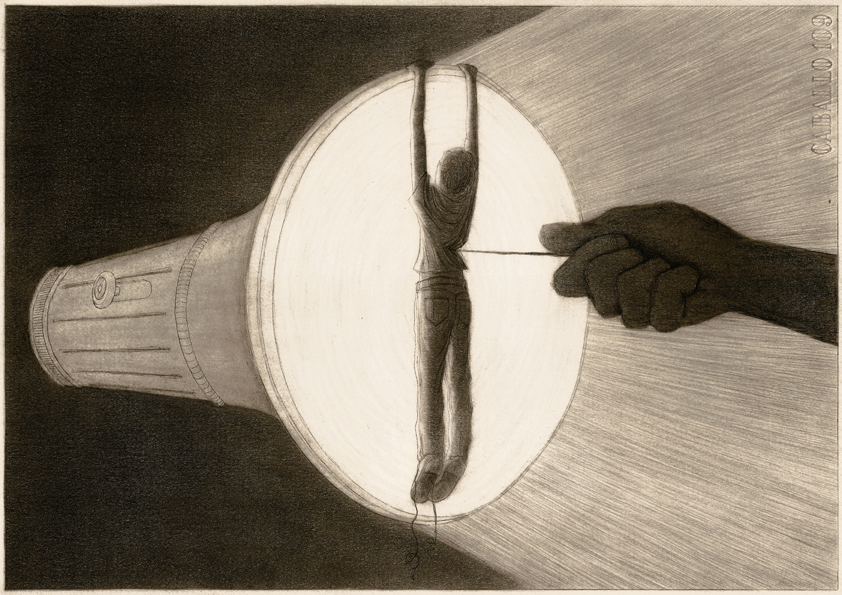 Rafael Felipe Martínez Irizar, a Cuban citizen of mixed race from Cienfuegos, and the son of Alfredo and Gregoria, will turn 44 this coming May 26. A few days later, he will have served 2 of the 5 years imposed on him as a sanction for the crime of illegally leaving Cuban territory.
Rafael Felipe Martínez Irizar, a Cuban citizen of mixed race from Cienfuegos, and the son of Alfredo and Gregoria, will turn 44 this coming May 26. A few days later, he will have served 2 of the 5 years imposed on him as a sanction for the crime of illegally leaving Cuban territory.

